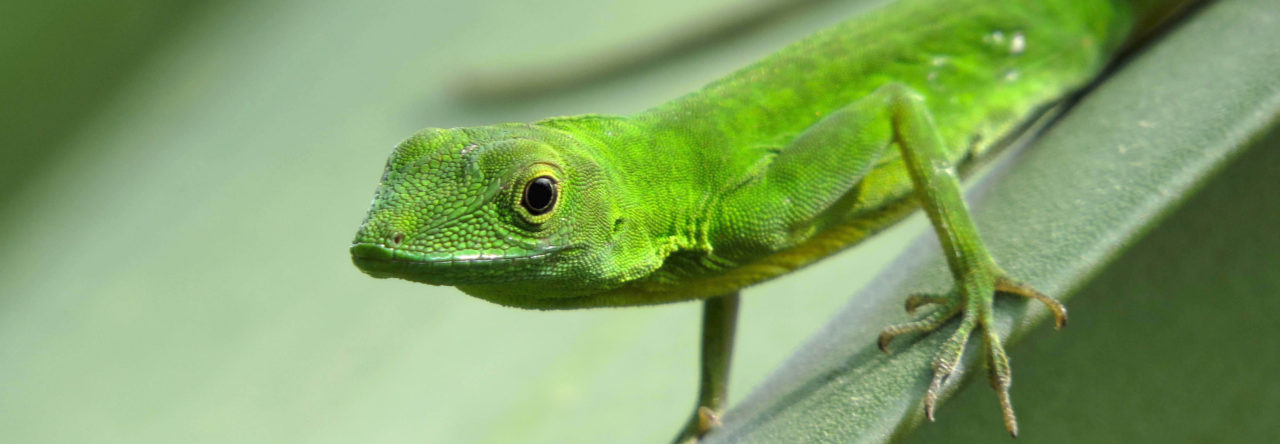For many years, biologists believed that evolution was a process that played out over vast stretches of geological time and would not be observable during field studies. More recent research, however, has begun to show that evolution can occur very quickly and that experiments in the field can address evolution in action. Tom Schoener, eminent professor at the University of California, Davis, shed light on our evolving view of how evolution occurs in his talk, “Eco-evolutionary Aspects of the Lizard Anolis sagrei in an Island Metapopulation” at JMIH 2016.
By introducing a novel predator, the curly-tailed lizard (Leiocephalus carinatus), which devours anoles, to a series of small islands in the Bahamas, Schoener and colleagues were able to observe evolutionary responses in A. sagrei in fewer than 10 years. By preying on A. sagrei, curly-tailed lizards induced behavioral changes in perch height, and created selection for relatively longer limbs that increase anoles’ ability to escape this predator. Curly-tailed lizards also caused a variety of ecological effects, including reducing anole populations and changing arthropod abundance, which may affect the future evolution of anoles on these islands. Ongoing monitoring shows that these anole populations seem to be rebounding and that different types of selection may be acting on hindlimb length.

A curly-tailed lizard (Leiocephalus carinatus) displays its namesake in Florida. Photo by Ianaré Sévi.
Perhaps not surprisingly, many of the experimental islands were occasionally devastated by hurricanes which are becoming more frequent and more powerful in the Caribbean. While these extreme weather events interrupted some of Schoener’s planned research, they also provided a unique opportunity to study how hurricanes may cause natural selection. Schoener found that anoles which survived hurricanes had longer hindlimbs, and these lizards were better able to hold onto trees and other perches at high wind speeds, likely increasing survival of hurricanes by preventing lizards being blown out to sea! Taken together this body of research suggests that novel environmental changes, such as invasive species or increasingly extreme weather, exert selection on organisms and that we can observe these organisms evolving rapidly on ecological timescales.


Leave a Reply